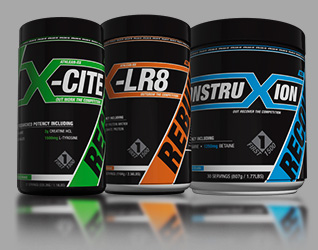Learn More
OUTWORK THE COMPETITION
The Power
X-Cite continues to carve out its place as one of the most effective pre-workout supplements on the market. Made from the most researched, most effective ingredients in sports nutrition, it’s no wonder why X-Cite is the choice for serious athletes.
The Science
Like everything we do at Athlean-X, our supplement facts panels contain a collection of the world’s best and brightest supplement ingredients. Each one is backed by research and science in sports medicine to ensure you’re getting the most effective dosages and the proper combinations to get real results.
The Facts
You asked and we answered with our most potent formulas and open labels so you know exactly which ingredients and how much of each you’re getting. Athlean-Rx contains no proprietary blends, and as always, no fillers, no substitutes and no harmful chemicals.
The Results
I’ve been working on this formula for well over a year, and I’ve promised to always deliver the same things that I recommend to my pro athletes and that I take myself. I’ve gotten a lot of comments on our YouTube channel about the gains I’ve made over the last few months. I can honestly say these formulas have had a major role in those results and they’re finally here so I can share them with you!
I take my training seriously, that’s why I take X-Cite before every workout.
ATHLEAN RX-1 X-CITE
ATHLEAN XCITE CONTAINS: 3200mg
CLINICAL STUDIES
Beta Alanine Increases intramuscular concentrations of carnosine thereby increasing strength, power, endurance and recovery, thereby increasing athletic performance and muscle mass.
- Increases fat loss and muscle growth
- Reduces post training session fatigue
ATHLEAN XCITE CONTAINS: 6g
CLINICAL STUDIES
One of the best benefits of L-Citrulline DL-Malate is enhanced ATP production. This is needed by every living cell in the body and equates to higher energy levels. This is even more important for muscles which are engaged in heavy training or otherwise working. Increased ATP production also leads to the ability to train harder and recover faster.
- Improves muscle endurance and aerobic performance
- Boosts energy
- Increases ATP production allowing for harder training and faster recovery
- Supports lean muscle mass gains
ATHLEAN XCITE CONTAINS: 2g (4g when taken with a stack)
CLINICAL STUDIES
Creatine hydrochloride's main benefit is helping to build muscle faster and easier. This is thought to be due to an increase in the production and supply of ATP to working muscle cells. This also provides more energy to the muscles, helping to avoid lactic acid build-up and allowing for longer and more intense workouts.
- Increases muscle strength and power
- Allows for faster and easier muscle growth
- Is better absorbed than Creatine Monohydrate and does not require a loading phase
- Reduces muscle damage and post workout soreness
ATHLEAN XCITE CONTAINS: 1.5g
CLINICAL STUDIES
One huge benefit of L-Tyrosine supplementation is that it can be useful for weight loss. It does this by improving some of the neurobiological disturbances typically caused by dietary restrictions. Medical research also indicates that L-Tyrosine supplementation can sharpen the memory, if taken on a regular basis. Tyrosine is able to protect the nerves from toxins and it is even able to cross the blood-brain barrier, which is one of the reasons why it is effective at raising the levels of key neurotransmitters. Another interesting l-tyrosine benefit is it helps the body adjust to situations of cold and fatigue.
- Supports weight loss
- Improves memory
- Regulates hormones
ATHLEAN XCITE CONTAINS: 1250mg
CLINICAL STUDIES
One of the most important benefits of Betaine is its ability to improve muscle strength and power during training sessions. Some studies have shown that it can improve endurance, increase the number of reps that can be done with a given weight, and improve power and force with every rep. Evidence also indicates that Betaine improves protein synthesis following training sessions.
- Improves muscle strength, power and endurance
- Increases protein synthesis following training sessions
- Increases growth hormone and insulin-like growth factor 1 production
- May help promote fat loss
ATHLEAN XCITE CONTAINS: 1g
CLINICAL STUDIES
Brand new studies suggest that Taurine is the most abundant amino acid in the body (above glutamine), particularly in the power generating type II fibers. Through supplementation it is possible to maintain peak stores of this important nutrient to enable more consistent force production without energy dropoff. Long term, taurine has been shown to be a cell volumizer that boosts internal muscle hydration…resulting in higher rates of muscle growth and function.
- Supports greater muscle growth and function
- Helps support cardiovascular function
- Helps temporarily restore mental alertness
- Assists in periods of increased mental and physical exertion
ATHLEAN XCITE CONTAINS: 1g
CLINICAL STUDIES
Choline is a precursor for several neurotransmitters that are important for brain function including muscle control, reflexes, memory and cognition. Research has also shown Choline to be beneficial for attention and focus.
- Improves attention
- Enhanced focus
ATHLEAN XCITE CONTAINS: 200mg
CLINICAL STUDIES
Caffeine is a widely used stimulant which is well studied and known to be safe in dosages of up to 500-600 mg. X-Cite provides the perfect blend of natural anhydrous caffeine and its herbal relative guarana, to produce unparalleled mental alertness and energy without the jitters or dangerous side effects of other popular pre-workout stimulants.
- Increases muscle endurance and strength
- Decreases muscle fatigue during workouts
- Boosts thermogenesis
- Improves concentration and short term memory
REFERENCES
Beta Alanine
-
Hoffman, J., Ratamess, N., Kang, J., Mangine, G., Faigenbaum, A., & Stout, J. (2006). Effect of creatine and ß-alanine supplementation on performance and endocrine responses in strength/power athletes. International Journal of Sport Nutrition and Exercise Metabolism, 16, 430-446.
-
Hoffman, J. R., Ratamess, N. A., Faigenbaum, A. D., Ross, R., Kang, J., Stout, J. R., & Wise, J. A. (2008). Short-durationBeta-alanine supplementation increases training volume and reduces subjective feelings of fatigue in college football players. Nutrition Research, 28(1), 31-35.
-
Kendrick IP, Harris RC, Kim HJ, Kim CK, Dang VH, Lam TQ, Bui TT, Smith M, and Wise JA. The effects of 10 weeks of resistance training combined with beta-alanine supplementation on whole body strength, force production, muscular endurance and body composition. Amino Acids 34: 547-554, 2008.
-
Stout, J. R., Graves, B. S., Smith, A. E., Hartman, M. J., Cramer, J. T., Beck, T. W., & Harris, R. C. (2008). The effect of beta-alanine supplementation on neuromuscular fatigue in elderly (55-92 years): a double-blind randomized study.Journal of the International Society of Sports Nutrition, 5(1), 1-6.
-
Zoeller, R. F., Stout, J. R., O'kroy, J. A., Torok, D. J., & Mielke, M. (2007). Effects of 28 days of beta-alanine and creatine monohydrate supplementation on aerobic power, ventilatory and lactate thresholds, and time to exhaustion.Amino Acids, 33(3), 505-510.
-
Hill, C. A., Harris, R. C., Kim, H. J., Harris, B. D., Sale, C., Boobis, L. H., ... & Wise, J. A. (2007). Influence of ?-alanine supplementation on skeletal muscle carnosine concentrations and high intensity cycling capacity. Amino Acids, 32(2), 225-233.
-
Smith, A. E., Walter, A. A., Graef, J. L., Kendall, K. L., Moon, J. R., Lockwood, C. M., ... & Stout, J. R. (2009). Effects of ?-alanine supplementation and high-intensity interval training on endurance performance and body composition in men; a double-blind trial. Journal of the International Society of Sports Nutrition, 6(1), 1-9.
-
Kern, B., & Robinson, T. (2009). Effects of beta-alanine supplementation on performance and body composition in collegiate wrestlers and football players. Journal of the International Society of Sports Nutrition, 6, 1-2.
-
Stout JR, Cramer JT, Zoeller RF, Torok D, Costa P, Hoffman JR, Harris RC, and O'Kroy J. Effects of beta-alanine supplementation on the onset of neuromuscular fatigue and ventilatory threshold in women. Amino Acids 32: 381-386, 2007.
-
Donovan, T., Ballam, T., Morton, J. P., & Close, G. L. (2012). B-alanine improves punch force and frequency in amateur boxers during a simulated contest. International Journal of Sport Nutrition and Exercise Metabolism, 22(5), 331-337.
-
Artioli GG, Gualano B, Smith A, Stout J, and Lancha AH, Jr.(201). Role of beta-alanine supplementation on muscle carnosine and exercise performance. Medicine and Science in Sports and Exercise. 42, 1162-1173.
-
Harris, R. C., Tallon, M. J., Dunnett, M., Boobis, L., Coakley, J., Kim, H. J., ... & Wise, J. A. (2006). The absorption of orally supplied B-alanine and its effect on muscle carnosine synthesis in human vastus lateralis. Amino acids, 30(3), 279-289.
L-Citrulline Malate
-
Performance and Relieves Muscle Soreness. The Journal of Strength & Conditioning Research 2010;24(5):1215-22 10.519/JSC.0b013e3181cb28e0.
-
Orozco-Gutierrez JJ, Castillo-Martinez L, Orea-Tejeda A, et al. Effect of L-arginine or L-citrulline oral supplementation on blood pressure and right ventricular function in heart failure patients with preserved ejection fraction. Cardiology journal 2010;17(6):612-8.
-
Sureda A, Cordova A, Ferrer M, Perez G, Tur J, Pons A. l-Citrulline-malate influence over branched chain amino acid utilization during exercise. European Journal of Applied Physiology 2010;110(2):341-51. doi: 10.1007/s00421-010-1509-4.
-
Effects of L-citrulline oral supplementation on polymorphonuclear neutrophils oxidative burst and nitric oxide production after exercise. Free Radical Research 2009;43(9):828-35. doi: doi:10.1080/10715760903071664.
Creatine HCL
-
Nelson, A. G., Arnall, D. A., Kokkonen, J., Day, R., & Evans, J. (2001). Muscle glycogen supercompensation is enhanced by prior creatine supplementation. Medicine and Science in Sports and Exercise, 33(7), 1096-1100.
-
Santos, R. V. T., Bassit, R. A., Caperuto, E. C., & Rosa, L. C. (2004). The effect of creatine supplementation upon inflammatory and muscle soreness markers after a 30km race. Life Sciences, 75(16), 1917-1924.
-
Lopez, R. M., Casa, D. J., McDermott, B. P., Ganio, M. S., Armstrong, L. E., & Maresh, C. M. (2009). Does creatine supplementation hinder exercise heat tolerance or hydration status? A systematic review with meta-analyses.Journal of Athletic Training, 44(2), 215.
-
Johnell, O., & Kanis, J. A. (2006). An estimate of the worldwide prevalence and disability associated with osteoporotic fractures. Osteoporosis International,17(12), 1726-1733.
-
Melton, L. J., Atkinson, E. J., O'Connor, M. K., O'Fallon, W. M., & Riggs, B. L. (1998). Bone density and fracture risk in men. Journal of Bone and Mineral Research, 13(12), 1915-1923.
-
Melton, J. L. (1995). Perspectives: how many women have osteoporosis now?. Journal of Bone and Mineral Research, 10(2), 175-177.
-
Center, J. R., Nguyen, T. V., Schneider, D., Sambrook, P. N., & Eisman, J. A. (1999). Mortality after all major types of osteoporotic fracture in men and women: an observational study. The Lancet, 353(9156), 878-882.
-
Chilibeck, P.D., Chrusch, M.J., Chad, K.E., Shawn Davison, K., & Burke, D.G. (2005). Creatine monohydrate and resistance training increase bone mineral content and density in older men. Journal of Nutrition Health and Aging, 9(5), 352-3.
-
Gualano, B., de Salles Painneli, V., Roschel, H., Artioli, G. G., Junior, M. N., Lucia de Sa Pinto, A., ... & Lancha, A. H. J. (2011). Creatine in type 2 diabetes: a randomized, double-blind, placebo-controlled trial. Medicine and Science in Sports and Exercise, 43(5), 770-778.
-
Gualano, B., Novaes, R. B., Artioli, G. G., Freire, T. O., Coelho, D. F., Scagliusi, F. B., ... & Lancha Jr, A. H. (2008). Effects of creatine supplementation on glucose tolerance and insulin sensitivity in sedentary healthy males undergoing aerobic training. Amino Acids, 34(2), 245-250.
-
Op't Eijnde, B., Ursø, B., Richter, E. A., Greenhaff, P. L., & Hespel, P. (2001). Effect of oral creatine supplementation on human muscle GLUT4 protein content after immobilization. Diabetes, 50(1), 18-23.
-
Johnston, A. P., Burke, D. G., MacNeil, L. G., & Candow, D. G. (2009). Effect of creatine supplementation during cast-induced immobilization on the preservation of muscle mass, strength, and endurance. The Journal of Strength & Conditioning Research, 23(1), 116-120.
-
Dechent, P., Pouwels, P. J. W., Wilken, B., Hanefeld, F., & Frahm, J. (1999). Increase of total creatine in human brain after oral supplementation of creatine-monohydrate. American Journal of Physiology-Regulatory, Integrative and Comparative Physiology, 277(3), R698-R704.
-
Watanabe, A., Kato, N., & Kato, T. (2002). Effects of creatine on mental fatigue and cerebral hemoglobin oxygenation. Neuroscience Research, 42(4), 279-285.
-
Rahimi, R. (2011). Creatine supplementation decreases oxidative DNA damage and lipid peroxidation induced by a single bout of resistance exercise. The Journal of Strength & Conditioning Research, 25(12), 3448-3455.
-
Sullivan, P. G., Geiger, J. D., Mattson, M. P., & Scheff, S. W. (2000). Dietary supplement creatine protects against traumatic brain injury. Annals of Neurology, 48(5), 723-729.
-
Scheff, S. W., & Dhillon, H. S. (2004). Creatine-enhanced diet alters levels of lactate and free fatty acids after experimental brain injury. Neurochemical Research, 29(2), 469-479.
-
Sakellaris, G., Kotsiou, M., Tamiolaki, M., Kalostos, G., Tsapaki, E., Spanaki, M., ... & Evangeliou, A. (2006). Prevention of complications related to traumatic brain injury in children and adolescents with creatine administration: an open label randomized pilot study. Journal of Trauma and Acute Care Surgery, 61(2), 322-329.
-
Sakellaris, G., Nasis, G., Kotsiou, M., Tamiolaki, M., Charissis, G., & Evangeliou, A. (2008). Prevention of traumatic headache, dizziness and fatigue with creatine administration. A pilot study. Acta Paediatrica, 97(1), 31-34.
-
Smith, R. N., Agharkar, A. S., & Gonzales, E. B. (2014). A review of creatine supplementation in age-related diseases: more than a supplement for athletes. F1000Research, 3.
L-Tyrosine
-
Wurtman, RJ, and Lewis MC. Exercise, plasma composition and neurotransmission. In: Advances in Nutrition and Top Sport, edited by Brouns F.. Basel: Karger, 1991, vol. 32, p. 94-109.
-
Romanowski, W, and Grabiec S. The role of serotonin in the mechanism of central fatigue. Acta Physiol Pol 25: 127-134, 1974.
-
Lieberman, HR, Corkin S, Spring BJ, Wurtman RJ, and Growden JH. The effects of dietary neurotransmitter precursors on human behavior. Am J Clin Nutr 42: 366-370, 1985.
-
Banderet, LE, and Lieberman HR. Treatment with tyrosine, a neurotransmitter precursor, reduces environmental stress in humans. Brain Res Bull 22: 759-762, 1989.
-
Gelenberg AJ, Gibson CJ, Wojcik JD. Neurotransmitter precursors for the treatment of depression. Psychopharmacol Bull 1982;18:7-18.
-
Meyer JS, Welch KMA, Deshmuckh VD, et al. Neurotransmitter precursor amino acids in the treatment of multi-infarct dementia and Alzheimer's disease. J Am Geriatr Soc 1977;7:289-98.
Betaine Anhydrous
- Lee E.C., et al. Ergogenic effects of betaine supplementation on strength and power performance. J Int Soc Sports Nutr. 2010 Jul 19; 7: 27.
- Trepanowski, J. F, et al. The effects of chronic betaine supplementation on exercise performance, skeletal muscle oxygen saturation and associated biochemical parameters in resistance trained men. J Strength Cond Res. 2011 Dec; 25(12): 3461-71
- Pryor, J. L., et al. Effect of betaine supplementation on cycling sprint performance. J Int Soc Sports Nutr. 2012 Apr 3; 9(1): 12.
- Apicella, J. M., et al. Betaine supplementation enhances anabolic endocrine and Akt signaling in response to acute bouts of exercise. Eur J Appl Physiol. 2013 Mar; 113(3): 793-802.
- Cholewa, J. M., et al. Effects of betaine on body composition, performance, and homocysteine thiolactone. J Int Soc Sports Nutr. 2013 Aug 22; 10(1): 39.
Taurine
- Azuma J, Takahisa K, Awata N, Ohta H, Hamaguchi H, Harada H, Takihara K, Hasegawa H, Yamagami R, Ishiyama T, Iwata H, Kishimoto S (1985) Therapeutic effect of taurine in congestive heart failure: a double-blind crossover trial. Clin Cardiol 8: 276–282
- Baba A, Lee E, Tatsuno T, Iwata H (1982) Cysteine sulfinic acid in the central nervous system: antagonistic effect of taurine on cysteine sulfinic acid-stimulated formation of cyclic AMP in guinea pig hippocampal slices. J Neurochem 38: 1280–1285
- Bousquet P, Feldman J, Bloch R, Schwartz J (1981) Tag antagonises the central cardiovascular effects of taurine. J Pharmacol Exp Ther 219: 213–218
- Chazov EI, Malchikova LS, Lipiva NV, Asafov GB, Smirnov VN (1974) Taurine and electrical activity of the heart. Circ Res 35: 11–21
- Costill DL, Palsky GP, Fink WJ (1978) Effects of caffeine ingestion on metabolism and exercise performance. Med Sci Sports 10: 155
- Franconi F, Stendardi MI, Failli P, Antonini G, Bennardini F, Matucci R, Manzini S, Giotti A (1983) Taurine antagonizes the alpha-adrenergic positive inotropic effect of phenylephrine. In:
- Kuriyama K, Huxtable RJ, Iwata H (eds) Sulfur amino acids: Biochemical and clinical aspects: 51–60
- Geiß K-R, Jester I, Askali F, Förster H, Hamm M, Böhmer D (1993) Auswirkungen fruktose- und glukosehaltiger Getränke auf die körperliche Leistungsfähigkeit bei 9 Triathleten. Dtsch Sportärztekongreß Paderborn (publication in preparation)
Geiß K-R, Nöcker J, Waag K-L, Queeney D (1991) Individual calorie calculation and sportspecific nutrient distribution in 100 high-performance athletes to increase performance. Int J Sports Med 12: 122 - Huxtable RJ, Bressler R (1973) Effect of taurine on a muscle intracellular membrane. Biochim Biophys Acta 323: 573–583
Huxtable RJ (1992) Physiological actions of taurine. Physiological Rev 72 1: 128 - IBL (1993) Radioimmunoassays zur quantitativen Bestimmung der Katecholamine Noradrenalin und Adrenalin in Plasma und Urin. dbm bulletin: 1–20
- Inoue A, Takahashi H, Lee L, Iyoda I, Sasaki S, Ijichi H (1985) Centrally induced vasodepressor and sympathetic nerve responses to taurine. Jpn Circ J 49: 1180–1184
- Jacobs DS (ed) (1988) Laboratory test handbook. Laxi-Comp/Mosby, Cleveland, p 139
- Livesey JH, Hodgkinson SC, Roud HR, Donald RA (1980) hGH-analysing methods. Clin Biochem 13: 151
- Mal'Chikova LS, Elizarova EP (1981) Taurine and cAMP content in the heart. Kardiologiya 21: 85–89
- Mal'Chikova LS, Speranskaia NV, Elizarova EP (1979) Effect of taurine on the cAMP and cGMP content in the rat heart in stress. Byull Eksp Biol Med 87: 134–137
Muramatsu M, Kakita K, Kuriyama K (1978) Amodulating tole of taurine on release of acetyl choline and norapinephrine from neuronal tissue. Jpn J Pharmacol 28: 259–268 - Ono M, Watanabe M, Minato K (1987) Effects of taurine on the metabolism under physical exercise. Sulfur Amino Acids 10: 183–186
- Pasantes-Morales H (1982) Taurine-calcium interactions in frog rod outer segments; taurine effects on an ATP-dependent calcium translocation process. Vision Res 22: 1487–1493
- Pasantes-Morales H, Martin DL, Ordonez A (1982) Taurine activation of a bicarbonatcdependent, ATP-supported calcium uptake in frog rod outer segments. Neurochem Res 7: 317–328
- Sherman WM, Brodowicz GR, Wright DA, Allen WK, Simonsen J, Dernbach A (1989) Effects of 4th preexercise carbohydrate feedings on cycling performance. Med Sci Sports Exer 21: 598–604
- Trout DL, Estes EH, Friedberg SJ (1969) Microdetermination of long chain fatty acids in plasma and tissues. J Lipid Res 1: 199
Choline Bitartrate
- Wurtman RJ. Effects of dietary amino acids, carbohydrates and choline neurotransmitter synthesis. Mt Sinai J Med 1988;55(1):75-86.
- Wurtman RJ, Hefti F. Melamed E. Precursor control of neurotransmitter synthesis. Pharmacol Rev 1981 ;32(4):315-35.
- Maire, J-C, Wurtman RJ. Effects of electrical stimulation and choline availability on release and contents of acetylcholine and choline in superfused slices from rat striatum. J Physiol Paris 1985;80:189-95.
- Blusztajn JK, Wurtman RJ. Choline and cholinergic neurons. Science 1983;221:614-20.
- Bierkamper GG, Goldberg AM. Release of acetylcholine from the vascular perfused rat phrenic nerve hemidiaphragm. Brain Res 1980;202:234-7.
- Dieterich HA, Lindmar R. Loffelholz K. The role of choline in the release of acetylcholine in isolated hearts. Arch Pharmacol 1978;301 :207-15.
- Linden DC, Newton MW, Grinnell AD, Jenden DJ. Rapid decline in acetylcholine release and content of rat extensor digitorum longus muscle after denervation. Exp Neurol 1983;81:613-26.
- Sandage BW, Sabounjian LA, White R. Wurtman RJ. Choline citrate may enhance athletic performance. Physiologist 1992;35:236a.
- Von Allworden HN, Horn S. Kahl J. Feldheim W. The influence of lecithin on plasma choline concentrations in biathletes and adolescent runners during exercise. Eur J Appl Physiol 1983;67:87-91.
- Conlay LA, Wurtman RJ, Blusztajn JK, Covielia IJ, Maher TJ, Evoniuk GE. Decreased plasma choline concentrations in marathon runners (letter). NEM 1986;175:892.
- Spector SA, Jackman MR, Sabounjian LA, Sakas C, Landers DM, Willis VVT. Effect of choline supplementation on fatigue in trained cyclists. Med Sci Sports Exerc 1995;27(5):669-73.
Caffeine Anhydrous & Guarana
- Duncan, M. J., Smith, M., Cook, K., & James, R. S. (2012). The acute effect of a caffeine-containing energy drink on mood state, readiness to invest effort, and resistance exercise to failure. The Journal of Strength & Conditioning Research, 26(10), 2858-2865.
- Trexler, E. T., Smith-Ryan, A. E., Roelofs, E. J., Hirsch, K. R., & Mock, M. G. (2015). Effects of coffee and caffeine anhydrous on strength and sprint performance. European Journal of Sport Science, 1-9.
- Beck, T. W., Housh, T. J., Schmidt, R. J., Johnson, G. O., Housh, D. J., Coburn, J. W., & Malek, M. H. (2006). The acute effects of a caffeine-containing supplement on strength, muscular endurance, and anaerobic capabilities. The Journal of Strength & Conditioning Research, 20(3), 506-510.
- Sökmen, B., Armstrong, L. E., Kraemer, W. J., Casa, D. J., Dias, J. C., Judelson, D. A., & Maresh, C. M. (2008). Caffeine use in sports: considerations for the athlete. The Journal of Strength & Conditioning Research, 22(3), 978-986.
- Church, D. D., Hoffman, J. R., LaMonica, M. B., Riffe, J. J., Hoffman, M. W., Baker, K. M., ... & Stout, J. R. (2015). The effect of an acute ingestion of Turkish coffee on reaction time and time trial performance. Journal of the International Society of Sports Nutrition, 12(1), 1-11.
- Hurley, C. F., Hatfield, D. L., & Riebe, D. A. (2013). The effect of caffeine ingestion on delayed onset muscle soreness. The Journal of Strength & Conditioning Research, 27(11), 3101-3109.
- Pedersen, D. J., Lessard, S. J., Coffey, V. G., Churchley, E. G., Wootton, A. M., Watt, M. J., & Hawley, J. A. (2008). High rates of muscle glycogen resynthesis after exhaustive exercise when carbohydrate is coingested with caffeine. Journal of Applied Physiology, 105(1), 7-13.
- Gahreman, D., Wang, R., Boutcher, Y., & Boutcher, S. (2015). Green Tea, Intermittent Sprinting Exercise, and Fat Oxidation. Nutrients, 7(7), 5646-5663.
- Hodgson, A. B., Randell, R. K., & Jeukendrup, A. E. (2013). The effect of green tea extract on fat oxidation at rest and during exercise: evidence of efficacy and proposed mechanisms. Advances in Nutrition: An International Review Journal, 4(2), 129-140.
- Vaughan, R. A., Conn, C. A., & Mermier, C. M. (2014). Effects of commercially available dietary supplements on resting energy expenditure: a brief report. ISRN nutrition, 2014.
- Goldstein, E. R., Ziegenfuss, T., Kalman, D., Kreider, R., Campbell, B., Wilborn, C., ... & Wildman, R. (2010). International society of sports nutrition position stand: caffeine and performance. Journal of the International Society of Sports Nutrition, 7(1), 5.
- Cherry Lemon Ice
- Fresh Squeezed Orange
- Country Pink Lemonade
- Jolly Watermelon Pucker
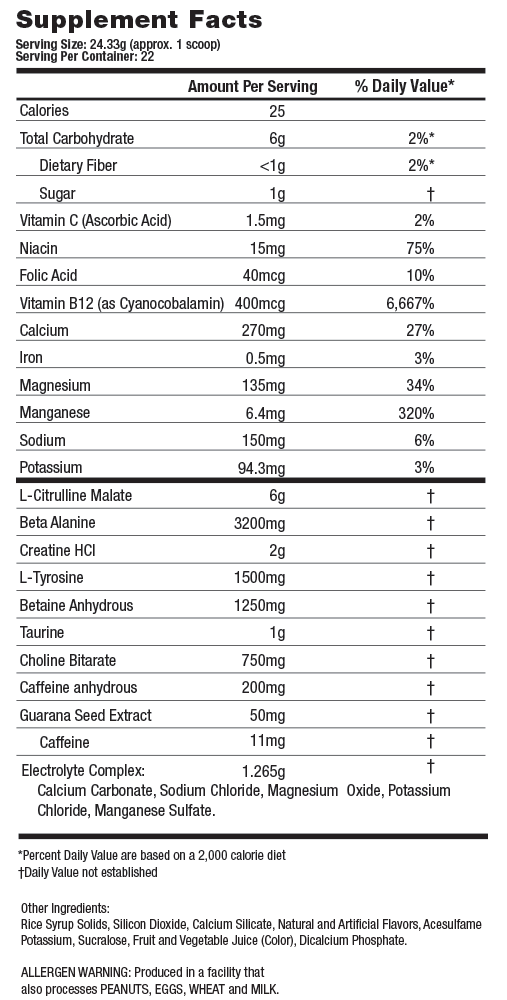

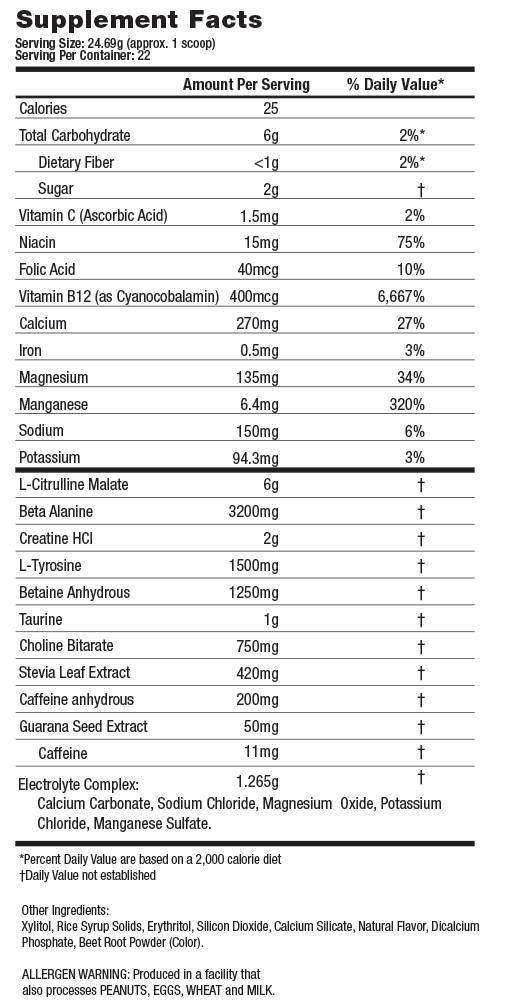
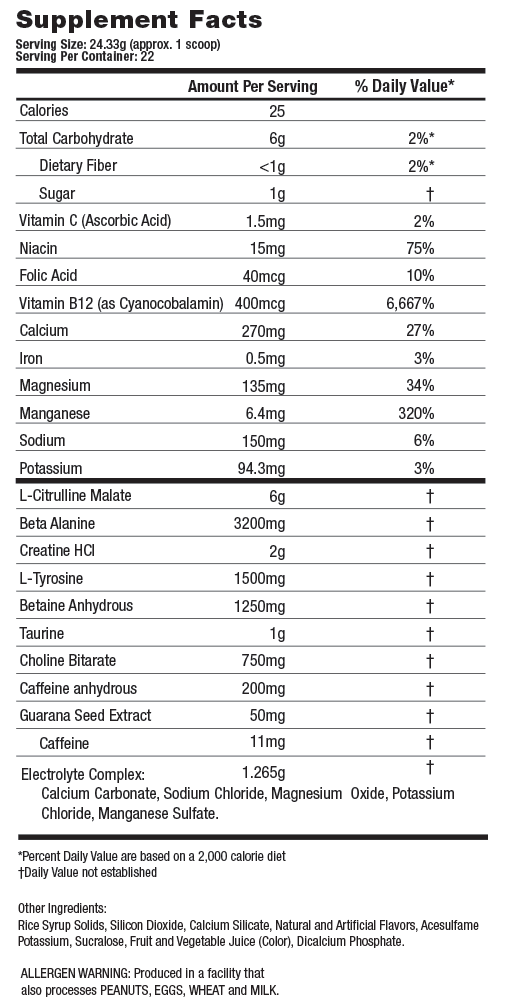



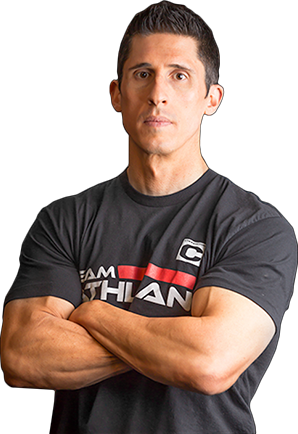
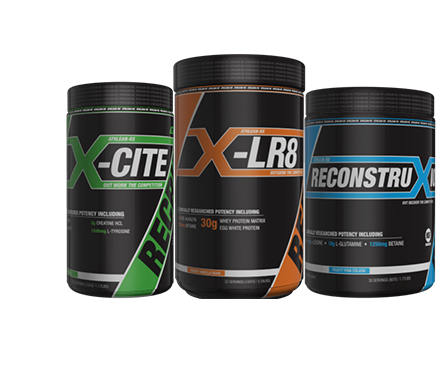
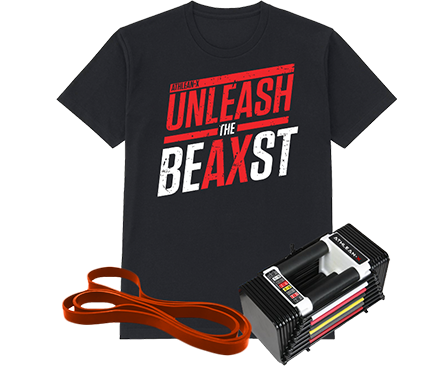
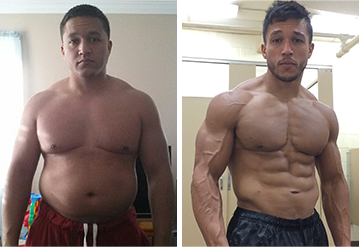
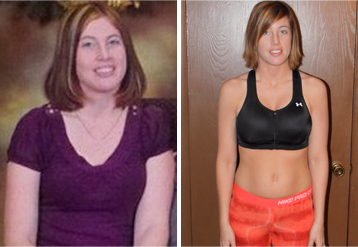
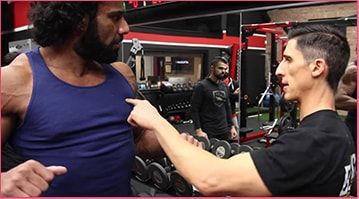
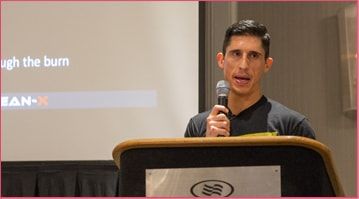

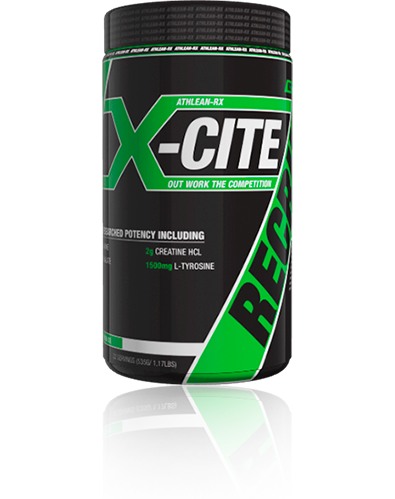

 INDICATES SWEETENED WITH STEVIA
INDICATES SWEETENED WITH STEVIA